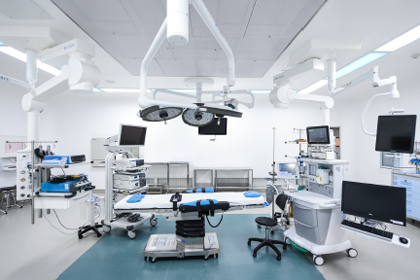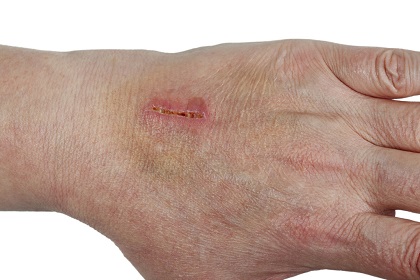Search
Related Articles

Same Day Surgery in Jiahui International Hospita
Welcome to Jiahui International Hospital (JIH) located in 689 Guipin
Laceration
WHAT YOU NEED TO KNOW:What is a laceration? A laceration is anInstructions for Incision and Abscess Drainage
Dear Sir/Madam:Greetings!Thank you for choosing the Jiahui Health Su
Tobacco use is one of the biggest public health threats the world has ever faced, killing more than 8 million people a year around the world. More than 7 million of those deaths are the result of direct tobacco use while around 1.2 million are the result of non-smokers being exposed to second-hand smoke. Smoking cessation reduces risk for many adverse health effects, including poor reproductive health outcomes, cardiovascular diseases, chronic obstructive pulmonary disease (COPD), and cancer. When coming into the hospital setting, one of the most important actions you can take to improve your health is to quit smoking, no matter how old you are or how long you’ve been smoking. Jiahui International Hospital is committed in building a hospital environment that is smoking-free.
• In recent years, research has shown that compared to nonsmokers, smokers have a higher chance of surgery-related complications like heart attack, stroke, shock and death. Smoking decreases blood flow making surgical wounds less likely to close, less likely to heal well and more likely to become infected. Smoking also weakens the immune system, which increases the chance of infection after surgery.
• Smokers are more likely than nonsmokers to experience specific complications from all types of surgeries. For example:
◦ Orthopedic (bone or joint) surgery: bones can take longer to heal.
◦ Plastic surgery: higher chance of scarring.
◦ Breast reconstruction surgery: more likely to lose implants.
◦ Spinal fusion surgery: higher chance of infection and bone fracture.
◦ Even secondhand smoke is a problem when it comes to surgery. For example, children have more complications after surgery if their parents smoke around them.
2. How does quitting smoking help with surgical outcomes?
• Quitting cigarettes before surgery makes a huge difference. Patients can expect fewer complications if they stop smoking three to four weeks before other types of surgeries too, but even quitting a day or two before any surgery can make a tremendous difference.
• Just within a day or two after stopping, the body can bring more oxygen to cells and blood flow improves, making it easier for healing. Three to six weeks after stopping, the body’s defenses against bacterial infection improve.
3. When to quit smoking before surgery
• The sooner you can quit smoking prior to surgery, the better.
• With each passing smoke-free day, your overall risk of complications decreases. Quitting even 12 hours prior to surgery can make a difference, but quitting eight weeks before surgery can have a dramatic impact on your surgery and recovery.
• When you quit matters:
◦ 12 hours before surgery: improved oxygenation, blood pressure, and heart rate
◦ 2 weeks before surgery: less breathing problems during surgery
◦ 3 weeks before surgery: wound healing improves
◦ 8 weeks before surgery: decreased risk of clot-related problems (heart attack and stroke) and risk of infection; improved immunity and response to anesthetic medications
4. What is the policy of Jiahui International Hospital for smoking cessation?
• At our hospital, you will be advised not to smoke in doors.
• If you are a surgical patient, we recommend you start quitting smoking at least one week prior to your surgery to prepare you for the procedure and your recovery. This will be the best time for you to start quitting smoking while you’re taking care of by doctors and nurses.
• Any challenge through your quitting smoking journey, please call your health care providers (Call Center: 4008683000) to discuss any alternative method to do more to help you quit smoking.
5. What you should do if you want to quit smoke?
• It's a good idea to start by talking with your doctor or nurse. It is possible to quit on your own, without help. But getting help greatly increases your chances of quitting successfully.
• Here are some tips for you if you feel like you are ready to quit:
◦ Start by making a plan first:
Set a quit date;
Tell your family and friends that you plan to quit;
Plan ahead for the challenges you will face, such as cigarette cravings.
References:
Global Burden of Disease [database].Washington, DC: Institute of Health Metrics;
2019. IHME,accessed 17 July 2021
https://www.who.int/news-room/fact-sheets/detail/tobacco
https://www.mgh.net/wellness/tobacco-cessation/
https://www.massgeneral.org/community-health/cchi/community-health-associates/living-tobacco-free
Smoking and Tobacco Use | CDC
- Previous: Instructions for Cataract Surgery
- Next: Same Day Surgery in Jiahui International Hospital(For adult)








